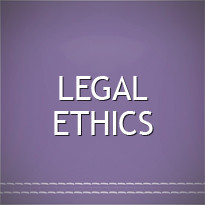43 Phil. 376 – Legal Ethics – Contemptuous Language
In 1921, Atty. Feliciano Gomez lost an election protest case for the governorship of Laguna filed by Juan Cailles which reached the Supreme Court. Thereafter, Gomez remarked in a newspaper that the Supreme Court sided with Cailles as a favor to then Governor-General Wood who was a friend of Cailles.
ISSUE: Whether or not Gomez is guilty of contempt.
HELD: No. The Supreme Court let this one go. The Supreme Court felt at that time that declaring Gomez in contempt will only seem to vindicate his accusations against the high court. The Supreme Court however emphasized that it is more proper to criticize the courts in relation to pending cases - such was not the case when Gomez criticized the high court. The Supreme Court said “litigants and lawyers should not be held to too strict an account for words said in the heat of the moment, because of chagrin at losing cases, and that the big way is for the court to condone even contemptuous language.” The rule in the more progressive jurisdictions is, that courts, when a case is finished, are subject to the same criticism as other people. Judges may not vindicate a private wrong by a public method. Although the honor and integrity of the court may be assailed, judges, like other persons, are relegated to the courts for redress.


